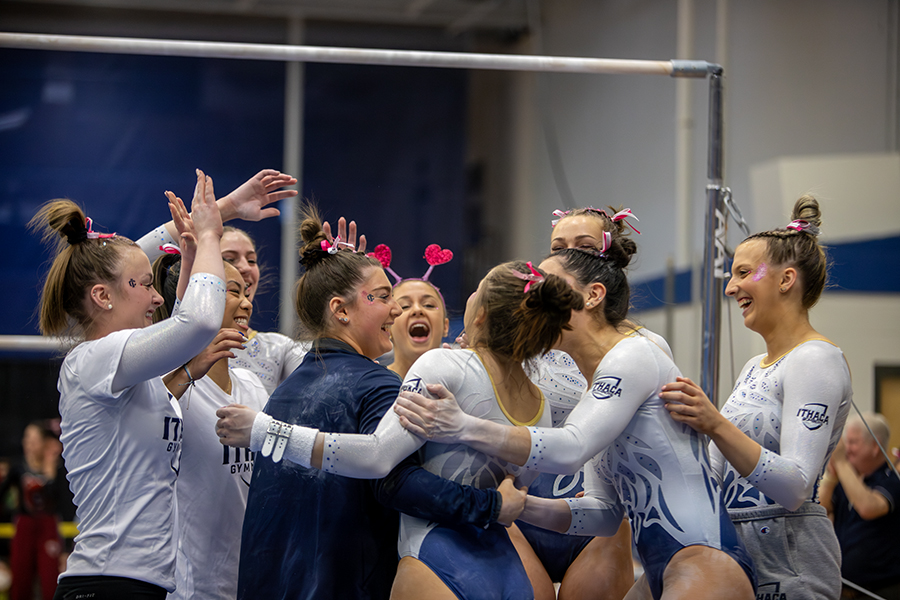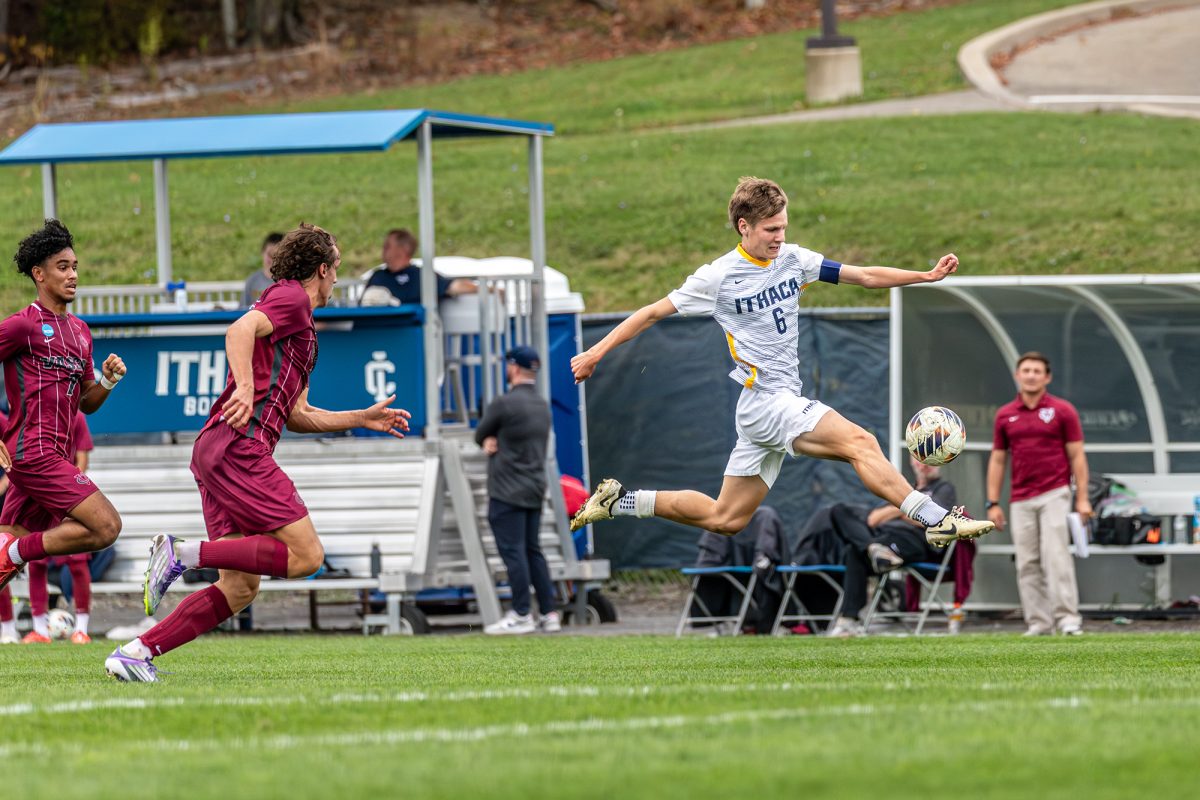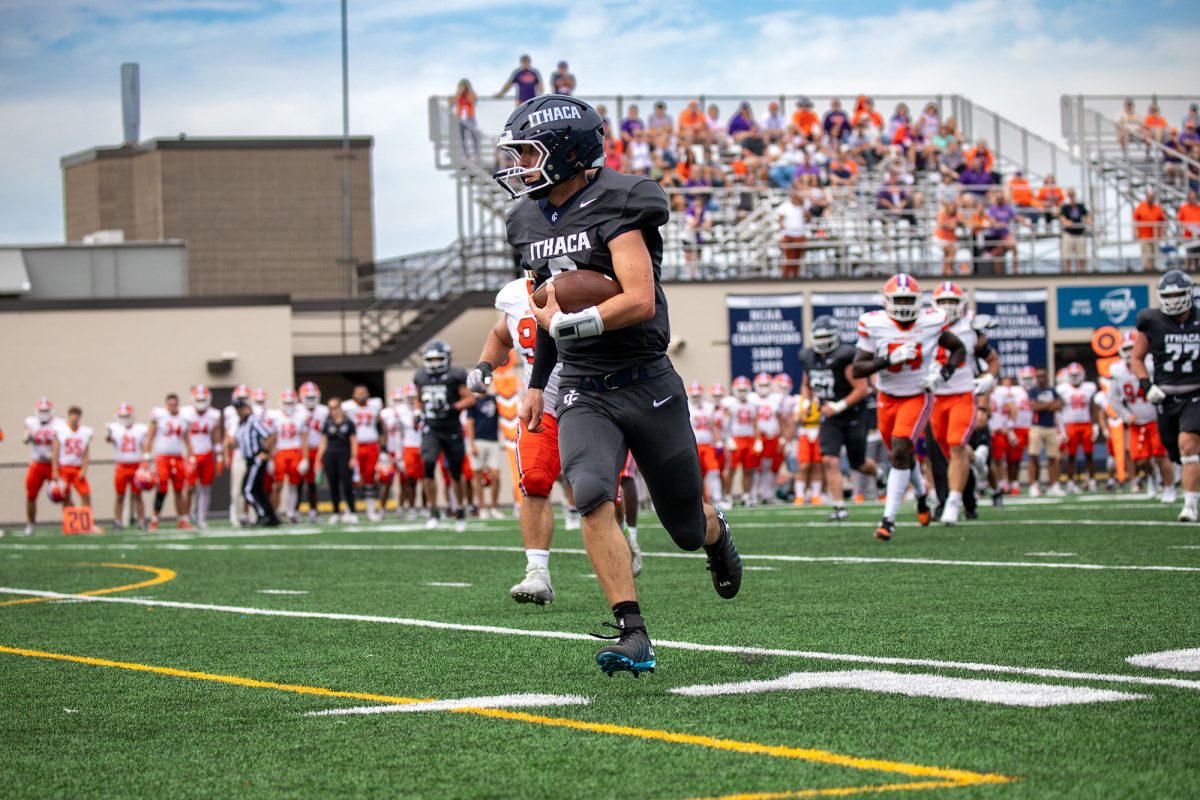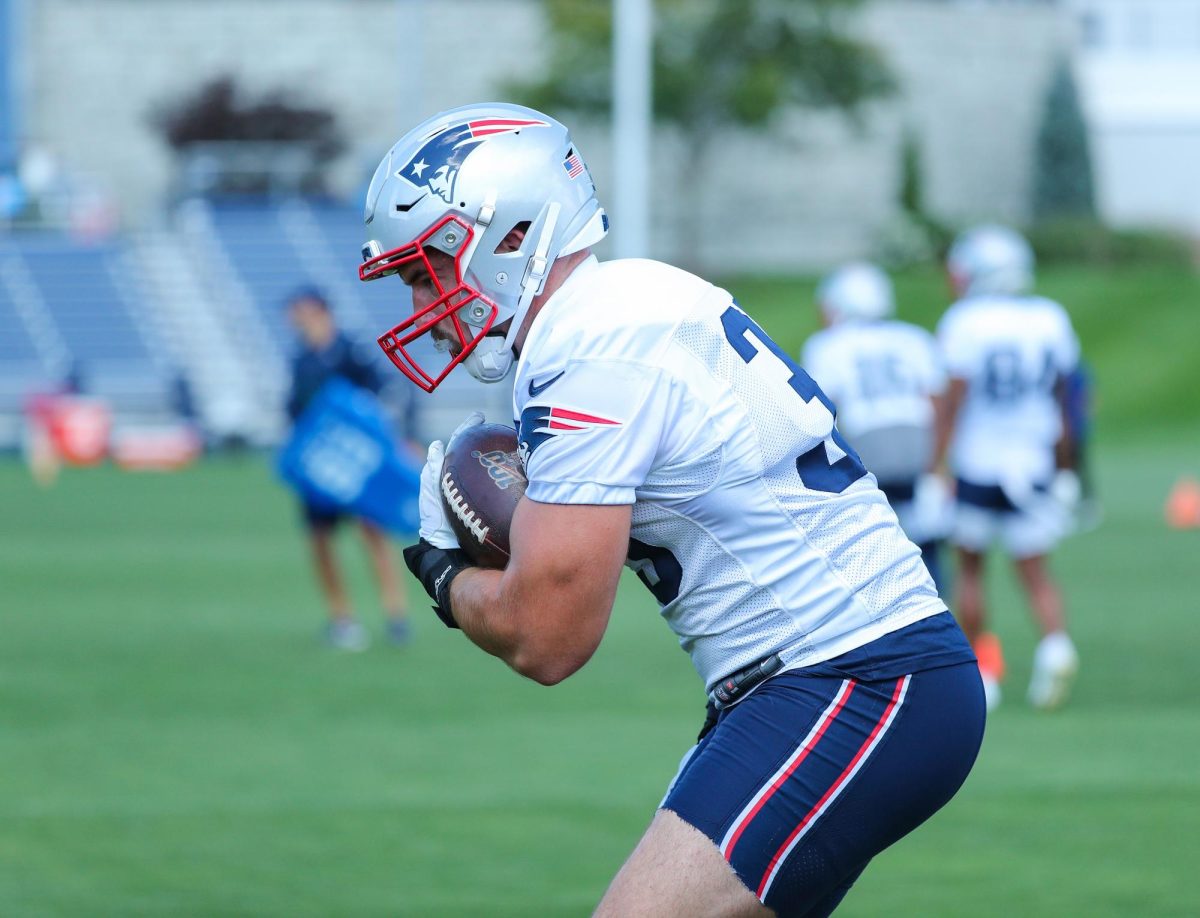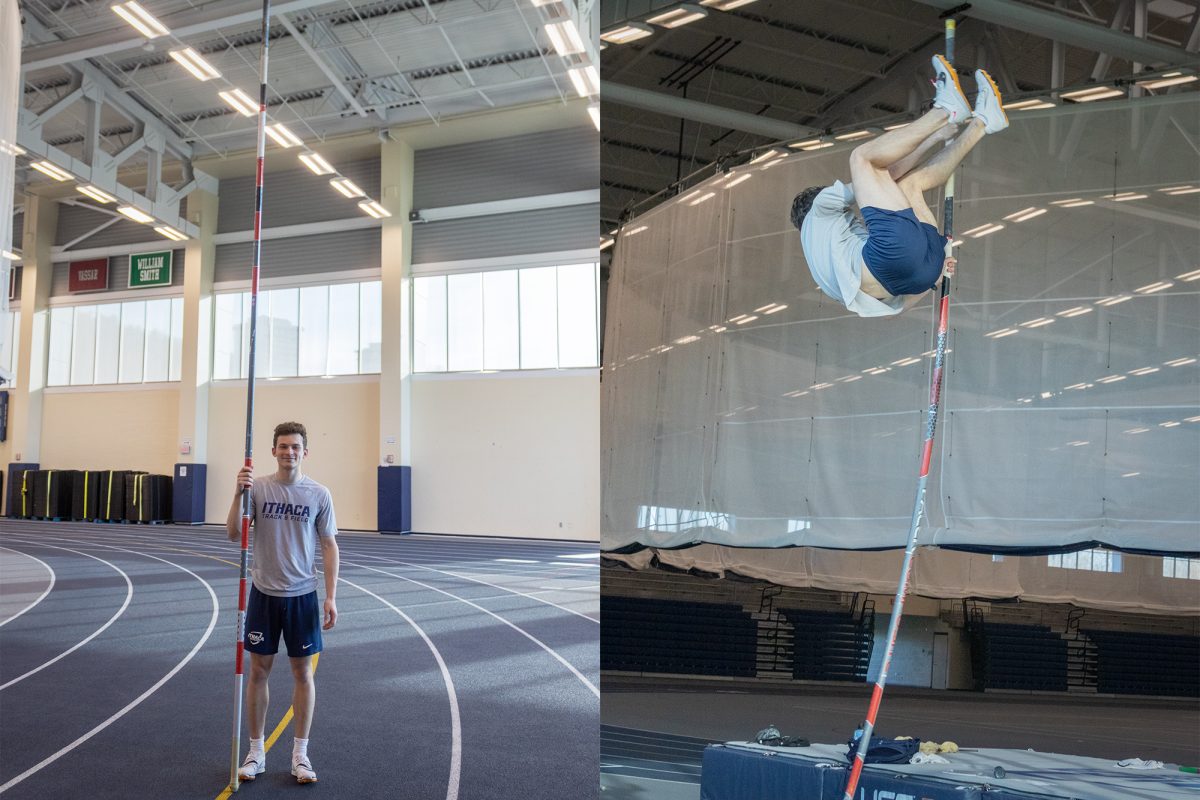During the 2023 season, the Ithaca College gymnastics team found great success, placing sixth at the National Collegiate Gymnastics Association championships, which made it their fourth consecutive year finishing in the top six.
Parallel to its success in competition was success in the classroom. On August 15, the Women’s Collegiate Gymnastics Association (WCGA) released its academic rankings for the 2022–23 school year. The Bombers finished the year with a cumulative GPA of 3.79, the fourth best out of the 84 schools that qualified for the rankings. For perspective, student athletes only need a 2.0 to be eligible for athletics. The squad of 18 gymnasts achieved the accomplishment in 12 different majors. This marked the first time the Bombers ranked in the top five of the WCGA rankings.
For head coach Rick Suddaby, this ranking is a major accomplishment for the program. Suddaby said that the team has been setting standards in the classroom for years and that he was excited when the rankings came in.
“They really excel academically; they have for a long time,” Suddaby said. “It’s something I’m very proud of. It’s something that promotes our program very well. If kids are getting a C or lower on their midterms, we’ll sit down and discuss what’s going on and help them with things.”
Success in the classroom often starts before gymnasts arrive on campus. Suddaby said that the team’s recruits often do well academically in high school and he has confidence that they will be able to manage their class schedule and athletic commitments.
“[Academic success] is kind of a given,” Suddaby said. “I had 28 applicants last year and every single one of them got into the institution, so we don’t have kids looking at Ithaca, at least with me, that can’t get in. So if they can get in and they’re a gymnast, then they have the tools they need to succeed.”
That classroom atmosphere was part of the reason why some gymnasts chose to come to the college. Junior Jillian Freyman, who had a 3.97 GPA last year, said she was drawn to South Hill both by the gymnastics team and the academic programs.
“I knew that [the college] had a really great occupational therapy program and I knew that was what I wanted to go into,” Freyman said. “So it was a pretty easy decision with gymnastics and then with the awesome occupational therapy program.”
Junior Marlena Bailey, one of four Bombers with a perfect 4.00 GPA last year, said she came to the college primarily to join the team, but the academic appeal of the college was also a major reason behind her decision.
“I mostly came for gymnastics, but I did like that at the [Division-III] level you can focus on both sports and academics at the same time,” Bailey said. “That’s something that’s also very important to me because at the end of the day, college gymnastics is gonna end and I’m gonna have to get an actual job, so it helps me balance both.”
The balance of commitments at the D-III level is something the team has used to its advantage during recruiting. Suddaby said D-III athletes have an advantage in the classroom because coaches at the level better understand the priorities of their student athletes than at other levels of college athletics, where student athletes may have a stronger focus on athletics versus academics.
Despite D-lll having better schedule accommodations for athletes, trying to balance commitments to gymnastics and academics can still be difficult. Suddaby said he understands this, and tries to give his athletes the structure to not fall behind academically. Freyman said Suddaby allows athletes to take time away from practice if they have extra work to do in the classroom.
“It’s definitely a challenge, but we are kind of given some leeway by [coach Suddaby],” Freyman said. “Rick [Suddaby] really stresses how important it is for us to do well. So if we need that time to study, if we have something super important coming up, he gives us the opportunity to take the time away from the gym in order for us to be academically successful. But it’s definitely hard.”
To help balance their schedules, the members of the team have worked on strategies to help both themselves succeed, along with helping teammates succeed academically. Bailey said one of the methods she has used is to manage her time, working around the team’s schedule to find the best times to get her work done.
“I try to balance my time and make sure I get my work done,” Bailey said. “I take every spare moment that I can to really do my work. I try to balance it out instead of just cramming at the end. We know when our meets are, so if I know we’re gonna be gone for the weekend, I’m gonna try to get my assignments done early.”
The stresses of athletics schedules on students is not lost on members of the faculty. Tim Reynolds ’12, an assistant professor in Exercise Science and Athletic Training, has had multiple student-athletes come through his classes. Reynolds said that when working with student-athletes, he appreciates them often being open about their schedules and trying to get ahead of work in the class.
“I try to stress the value of communication,” Reynolds said. “What I try to do as a faculty member is allow them to tell me days and times that typically work best, whether that be earlier in the week or after class … and we just try to coordinate modifications. What I appreciate that our student-athletes do is that they’re not trying to postpone that until next week, they take the initiative to take it early.”
Reynolds spoke on another one of the strategies that the gymnastics team has used to get ahead in the classroom, with athletes grouping together to help each other in similar classes. Suddaby said that if members of the team have the same class or have the same professor, they will work as a team to help with homework.
Reynolds said that in the past, he has seen athletes in his classes from the same sports work together, which both helps reduce stress on themselves, but creates a more balanced schedule for all of them.
“I think that they’ve developed a rapport and understand how each other works best,” Reynolds said. “I think that also allows for them to best optimize their practice schedule with another person going through the course. It’s not like they’re trying to coordinate multiple different student responsibilities. They share very similar responsibilities.”
With all the work the gymnastics team has put in over the past academic year, they are proud of the ranking they received. Freyman said the team was excited to get ranked as highly as they did, as it helped validate not only the work in competition, but the work outside of competition as well.
“[It means] a whole lot,” Freyman said. “Obviously the team is focused on gymnastics, but it’s an amazing group of girls, and we’re all so proud to have put so much work into all of our academics. We have so many different majors on the team, but we just love that we’re really putting in the work and we’re really making ourselves known academically.”



